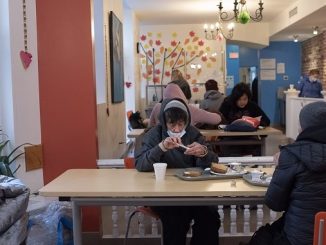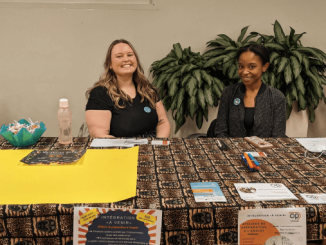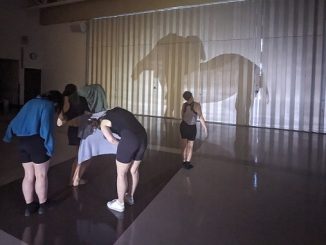A Montréal-based intercultural non-profit organisation, Teesri Duniya Theatre creates plays with political resonance and community-based events that promote constructive change. Their mission is to promote critical thinking, address injustices, develop cross-cultural dialogue, create opportunities, and improve the representation of Indigenous, multicultural, BIPOC, and LGBTQ+ peoples by working with and in primarily marginalised communities. By incorporating social responsibility into art and fostering a decolonising consciousness, the theatre company fulfils its mission of elevating these voices. We spoke with Rahul Varma, Artistic Director, to learn more.
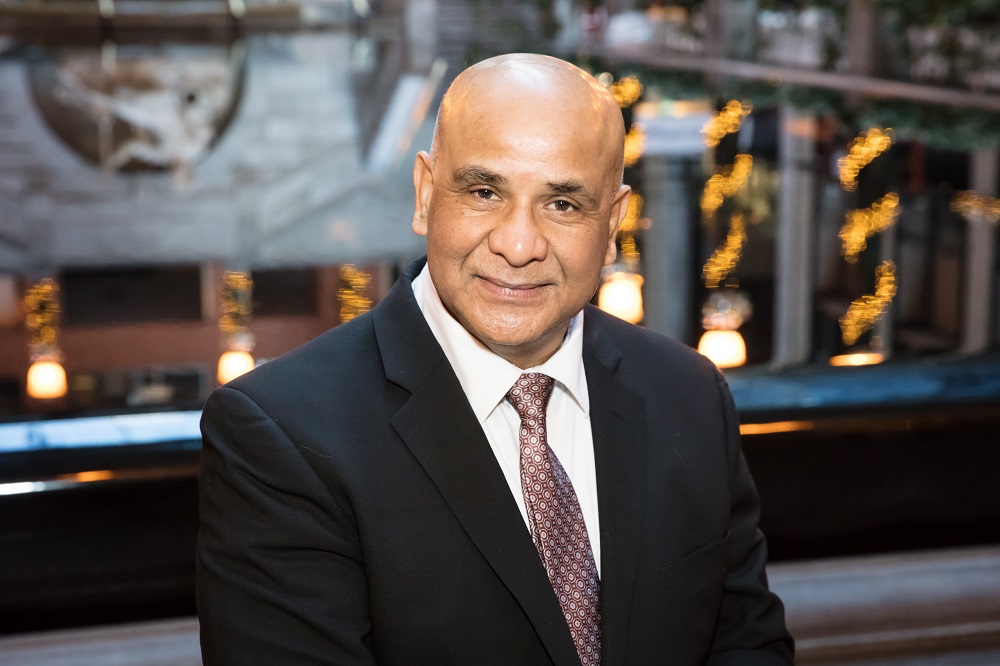
Describe your charity/non-profit/volunteer work in a few sentences.
Teesri Duniya Theatre is an intercultural not-for-profit company that produces politically relevant plays and community-engaged activities, which encourage positive change. We work with and in primarily marginalized communities to foster critical thinking, address injustices, generate cross-cultural dialogue, create opportunities, and enhance the representation of Indigenous, multicultural, BIPOC and LGBTQ+ peoples. We uplift these voices by infusing art with social responsibility, through a decolonizing consciousness.
What problem does it aim to solve?
Teesri Duniya aims to simultaneously connect and engage communities to address injustice. We do this through a set of three core activities:
Productions: We present intercultural, politically prophetic, critical, representative plays, and dance theatre pieces that employ culturally conscious casting.
Development: We host an intercultural, BIPOC, LGBTQ+, play and playwrights development program called Fireworks.
Artist in Community: We facilitate and collaborate on art-based and art-inspired projects aimed at addressing social issues afflicting different communities in Quebec, particularly BIPOC and LGBTQ+ communities.
When did you start/join it?
Co-Artistic Directors, Rahul Varma and Rana Bose established the Teesri Duniya Theatre in 1981.
What made you want to get involved?
Conceived in 1981 as an intercultural company, Teesri Duniya Theatre is a response to the country’s hegemonic, bi-cultural art world. Except for the Black Theatre Workshop, there was no intercultural theatre company in Montréal at that time. The notion of political theatre, mention of Indigenous people, and cultural plurality was symbolic at best. Exclusionary practices and the bi-cultural hegemony forced artists of colour to practice their art in ethnic ghettos or attune their expressions in accordance with the tastes of the dominant cultures, who perceived minority practices as “outlandish” suitable primarily for exotic dresses, folkloric habits, and outdated rituals. We formed Teesri Duniya Theatre under this historical climate to present diversity, class, and gender, with a progressive political consciousness.
What was the situation like when you started?
At the time of Teesri’s inception, the Canadian theatre scene was a product of its bi-colonial heritage divided by language, which led it to produce bi-national performances in English or French, focusing its concerns on self-definition and self-interest. This dominant bi-cultural, bi-colonial-Eurolingual theatre world studiously ignored Indigenous people’s stories and the plurality of the differing cultures that have also historically comprised the social fabric of this land.
How has it changed since?
The theatre landscape has changed over the years; with Canada institutionalizing multiculturalism in 1971, and Québec becoming more secular through the Quiet Revolution of the 1960s, we saw mild representation of visible minorities and an emergence of a relatively more radical drama, which attempted to analyze its post-colonial status politely. Due to increased immigration from non-European countries, cultural diversity became increasingly pronounced within Canadian communities, yet for decades, the theatre scene remained exclusionary, hegemonic — Euro-French in Quebec and Euro-English in the rest of Canada.
Since the inception of Equity Diversity and Inclusion (EDI) across the English-speaking theatre industry, representation has increased steadily across the province. However, the simple addition of people of colour onstage is not sufficient – especially when they are telling the same white narratives that have been told for decades. True multiculturalism stems from a desire to learn from and appreciate the things that make us different.
We believe in the practice of colour-conscious casting, distinctly opposed from colour-blind casting. With Teesri initiating this practice, we aim to spread the understanding that for an accurate representation of diversity onstage, each character’s cultural heritage must play a key role in determining how their story is told – and moreover, who is employed and empowered to tell it. Despite all the changes made, to this day, Teesri Duniya Theatre remains the only professional intercultural theatre company in Quebec.
What more needs to be done?
Colour-conscious casting must become a basic practice across Quebec and Canadian theatre. We believe that doing so is the only way to ensure that the stories being told on stage most accurately reflect the reality from which they were inspired. We encourage established structures within the industry to lean into and support the development of emerging artists, particularly those from marginalized communities, to help break down the barriers that hinder equality.
How can our readers help?
We encourage readers to support works made by diverse artists, artists of colour, LGBTQ+ artists, neuro-divergent and disabled artists. To bear witness to art that is created by and which features the stories of diverse individuals is to gain an invaluable insight into those communities. We also encourage Montrealers to experience local, community-driven art! We hold handfuls of artistic community events throughout the year, and we love to see new faces who are looking to engage with us. Events come in the form of play readings by local playwrights, film screenings, open-mic nights, gallery exhibits, roundtable discussions etc. And if you are an artist yourself who feels as though they could use the support of the team at Teesri, reach out to us and pitch us a project! We are open to collaboration in all forms.
Do you have any events coming up?
A production of Two Birds One Stone.
Teesri Duniya Theatre kicks off our season: Staging Freedom with a Montreal premiere of Two Birds One Stone, funny, brilliant, and politically engaged!
Rimah Jabr, a Muslim Palestinian, and Natasha Greenblatt, a Jewish Canadian, have woven together in Two Birds One Stone, a heartfelt and charged conversation. This thought-provoking and compelling narrative explores the essence of friendship, delves into the complexities of privilege, and reflects on the search for home and freedom.
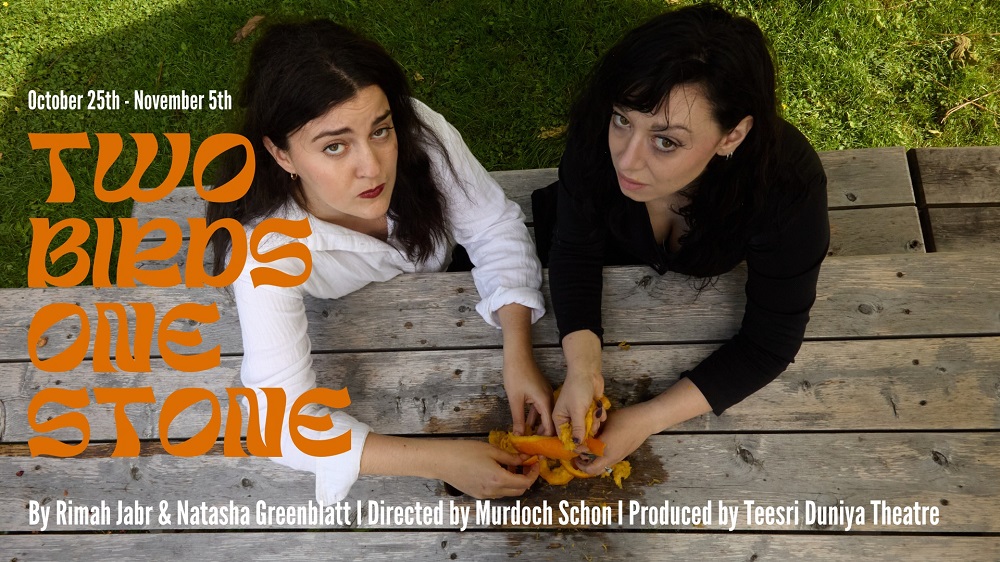
Dates and Times:
October 25th – November 5th at 8 PM
Ticket Prices:
Standard Ticket $ 28.00
Student discount 15% off STUDENT15
Senior discount 15% off SENIOR15
Location
Rangshala Studio, Cité des Hospitalières, 251 Av. des Pins Ouest, Montréal.
For more information go to our website.
Where can we follow you?
Website | Instagram | Facebook
PAY IT FORWARD: What is an awesome local community organization you love?
Centre Greene Community Centre in St. Henri!
We have collaborated with them on a workshop series titled Shared Dreams, which provided a space for new arrivants, BIPOC and LGBTQ+ individuals to find community as they explored theatrical writing and performance.
Centre Greene is a not-for-profit community organization dedicated to providing quality social, cultural, and recreational services to the Montreal community.

